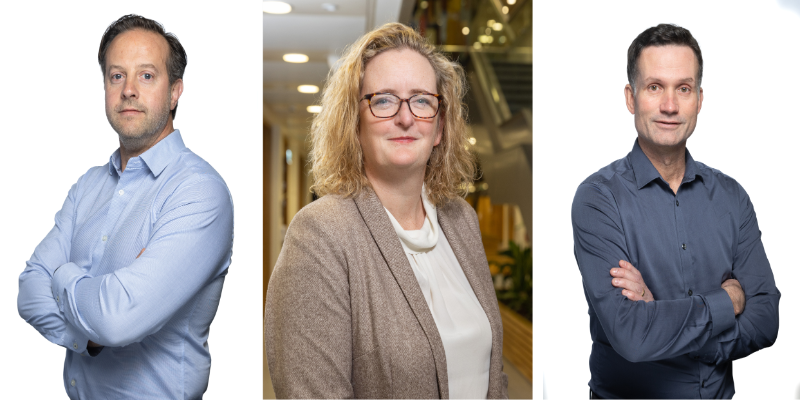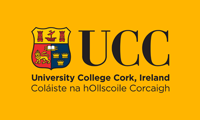News
Three APC projects funded in latest round of the SFI Frontiers for the Future programme

Minister for Further and Higher Education, Research, Innovation and Science, Simon Harris, TD, has today announced 62 grants valued at €42 million to support research across 13 Higher Education Institutions. This programme was funded in collaboration with the Children’s Health Foundation (CHF) and Geological Survey Ireland (GSI).
The SFI Frontiers for the Future Programme provides opportunities for independent investigators to conduct highly innovative, collaborative research in science, technology, engineering and mathematics (STEM) with the potential to deliver impact, whilst also providing opportunities for high-risk, high-reward research projects.
Among the new research projects that will be funded at University College Cork are three APC projects:
Professor Marcus J Claesson (School of Microbiology and APC Microbiome Ireland, College of Science Engineering and Food Science and College of Medicine and Health).
Determining the biotherapeutic potential of missing Lachnospiraceae in inflammatory bowel diseases. This project will identify, isolate and characterise biotherapeutic Lachnospiraceae strains and their corresponding metabolites that are potentially protective of inflammatory bowel disease.
Professor Ruth Massey (School of Microbiology and School of Medicine, APC Microbiome Ireland, College of Science Engineering and Food Science and College of Medicine and Health).
Attack and defence: defining key bacterial pathogenic strategies to identify targets for therapeutic intervention. This project investigates the molecular characterisation of the means by which two major human pathogens Staphylococcus aureus and Streptococcus pneumoniae cause disease by attacking human tissue and defending themselves from the human immune system. By understanding these bacterial processes this project aims to identify novel means of preventing and treating infections.
Professor Liam O'Mahony (School of Medicine, School of Microbiology, APC Microbiome Ireland, College of Medicine and Health).
Identification of Immune-Microbial Interactions that Contribute to Metabolic Reprogramming following SARS-CoV-2 Infection. We know that the microbes that live on us and in us (our microbiota) are extremely important for educating our immune system and metabolism. In this project, Professor O’Mahony and his team will examine these microbiota-immune-metabolic interactions in patients with Long COVID and determine if these interactions are functionally important in disease pathophysiology.
Congratulating the recipients from University College Cork on their awards, Professor John F. Cryan, UCC Vice President for Research and Innovation said: “I would like to congratulate the UCC researchers on their awards under the SFI Frontiers for the Future programme. These awards are of vital importance in providing opportunities to address gender imbalance and to support emerging researchers returning from leave. Inclusion and diversity are at the heart of what UCC represents and incorporating these principles into research areas across the UCC Futures areas of Sustainability, Medicines, and Food, Microbiome and Health aligns with the strategic plan for the University.”
The other UCC recipients are:
Dr Zili Li (School of Engineering & Architecture, College of Science Engineering and Food Science).
Geotechnical big data monitoring and assessment tools for evaluating whole-life performance of underground infrastructure. Many miles of lifeline underground infrastructure play a vital role in transport network and urbanization. This project will develop and improve two monitoring tools (distributed fibre optic sensing, image-based defect assessment) to gather more comprehensive big data of 2-4 large-scale underground infrastructures than previously available, in collaboration with Transport Infrastructure Ireland, Cambridge University, UC Berkeley, Tyndall, CERN and industrial partners. Based upon the field data, computational analysis will be conducted to evaluate the underground infrastructure performance during the life cycle, subject to deterioration, climate change, etc.
Dr Marguerite Nyhan (School of Engineering & Architecture, Environmental Research Institute and MaREI Centre for Energy, Climate & Marine, College of Science Engineering and Food Science).
Environmental Intelligence - Modelling Complex Human-Environment Interactions for Maximising Environmental Health in Urban Areas. The Environmental Intelligence frontier research project will significantly advance the science of sustainable, healthy and liveable cities of the future. This ground-breaking research will harness sensors, largescale Information Communications Technologies (ICT) datasets, artificial intelligence and machine learning to understand urban dynamics, air pollution and greenspace in unprecedented accuracy and scale in several cities in Ireland and the United States. Importantly, Dr Nyhan will examine associations between human exposures, behaviour change and health outcomes with a view towards informing the planning and design of cities as well as urban environmental health policies.
Dr Dean Venables (School of Chemistry and Environmental Research Institute, College of Science Engineering and Food Science).
Low-Cost Monitoring using Spectroscopy for High quality information on Urban Nitrogen dioxide (LOCOMOSHUN). Air pollution is a serious public health problem, prematurely killing 400,000 Europeans every year. The LOCOMOSHUN project aims to develop a novel optical sensor for nitrogen dioxide (NO2), a priority air pollutant. Sensors developed in this project will be accurate and affordable, allowing them to be used to expand city air quality monitoring and extend it to towns and low-income countries. The sensors will be demonstrated in a vehicle emissions study and in an innovative citizen science study in which pupils study air quality around their schools.
Professor Astrid Wingler (School of Biological, Earth & Environmental Sciences and Environmental Research Institute, College of Science Engineering and Food Science).
Functional traits of grass weeds – investigating the processes that determine weediness. This project investigates the biological basis of growth and seed formation in wild oat, a common weed in cereal fields. It also determines the competition with barley to aid selection of more competitive crop varieties for sustainable production with reduced herbicide use.
Professor Philip Nolan, Director General of Science Foundation Ireland, said: “I am delighted that we are funding 62 new research grants through the SFI Frontiers for the Future programme. A key action of SFI’s strategy is to deliver 140 investigator grants every year to support excellent research and to attract top talent. The Frontiers for the Future programme is the primary mechanism to achieve this goal. It is vital that we invest in excellent and innovative research in Ireland. I would like to thank the Children’s Health Foundation and Geological Survey Ireland for collaborating on this programme with SFI, allowing us to fund projects which will have a significant impact in key areas.”


